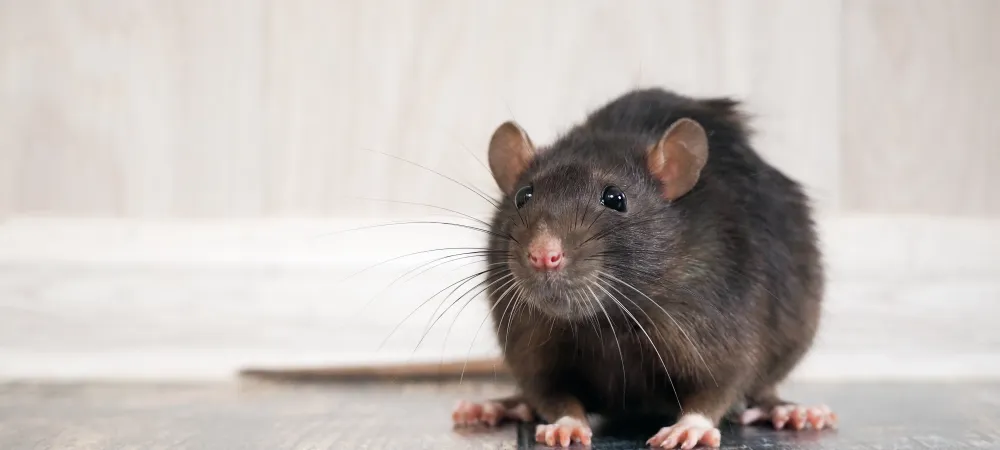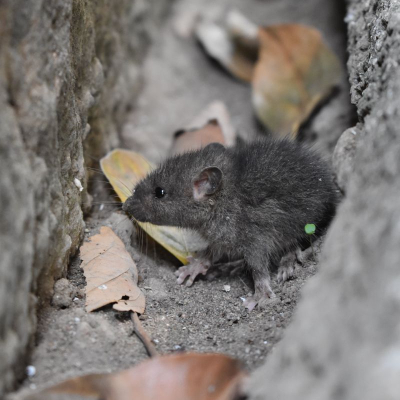North Carolina is home to a diverse range of rodent species, both big and small. Whether you’re dealing with a rat infestation or simply curious about the types of rodents in North Carolina, this guide will provide you with the knowledge you need to identify these critters and take appropriate action. From the largest rodents like beavers to the smallest mice, we’ll explore the characteristics and habits of each species native to the greater Triangle area, as well as share how Triangle Pest Control can help you effectively deal with rats and mice.
Rodent Season: Why You’re Just Now Seeing NC Rodents
It is common to start seeing rodents in North Carolina during this time of year, as rodent season typically begins when the weather starts to cool, which can be anywhere from August to late October. During this period, mice, rats, chipmunks, and squirrels start to search for warmer spaces to spend the winter months. If they are not discovered during that time, they are often discovered months later as they wreak havoc on your home and become a bigger problem in searching for and storing their (your) food!
Our Pest Control Includes Rodent!
Large Rodents in North Carolina and Their Identification
North Carolina is home to several species of large rodents that can be found throughout the state. These larger rodents can cause significant damage to property and pose a potential threat to human health. Identifying these pests is crucial for effective management and control. Let’s take a closer look at some of the notable large rodent species in the state:
1. Beavers
- These stocky rodents are the largest in North Carolina, weighing between 30 to 40 pounds.
- They are known for their distinctive incisors, which they constantly chew on to control their teeth growth.
- Beavers build dams using felled trees, which can be destructive to properties.
Small Rodents in North Carolina and Their Identification
In addition to the larger rodent species, North Carolina is also home to various smaller rodents. While they may not cause as much damage as their larger counterparts, small rodents can still be nuisances and carry diseases. Identifying these pests is essential for effective management and prevention. Here are some of the common small rodent species found in the state:
1. Mice
North Carolina is home to various species of mice, including house mice and deer mice.
- House mice are typically gray or brown in color, while deer mice have a more reddish-brown.
- They are typically small in size, with house mice measuring around 2.5 to 3.75 inches in length.
- Eastern deer mice are small rodents that can be found in different habitats such as forests, fields, and residential areas.
- Golden mice are small rodents that can be found in the southeastern United States, including North Carolina.
Mice can cause damage to insulation, wiring, and other materials in homes. Triangle Pest Control provides a comprehensive mice removal service, ensuring the safety of your property and doing so same-day if you call before noon!
2. Rats
North Carolina is inhabited by different types of rats, such as roof rats and Norway rats.
- Roof rats (or black rats) are skilled climbers and may use roofs to access attics or make nests in gutters.
- Norway rats (or brown rats) are less adept climbers but are more aggressive and known carriers of diseases, and unfortunately, are the most common rat species found here in NC.
- Rats can pose a risk to children and pets and should be dealt with promptly.
Triangle Pest Control offers customized rat extermination services, combining thorough same-day inspections, efficient trapping methods, and exclusion advice to eliminate rat infestations effectively.
Additional Information
- Voles: These small rodents are often difficult to remove as they spend most of their time underground and near waterways. They create extensive tunnel networks, potentially causing damage to yards.
- Bats, rabbits, and moles are frequently mistaken as rodents but belong to different orders. Bats are part of the chiroptera order, rabbits have their own order, and moles are part of the order Eulipotyphla.
- It’s important to seek professional assistance for safe and sanitary rodent removal, as rodents can carry diseases, damage insulation, and wiring, and pose risks to your property and well-being.
With this ultimate guide to identifying the rodents of North Carolina, you now have a comprehensive understanding of the various types of rodents you may encounter, whether big or small. By being able to recognize these critters and understanding their behaviors, you can take appropriate action and seek professional assistance when needed. Remember, Triangle Pest Control is here to provide prompt and reliable solutions to help you deal with any rodent-related issues, ensuring a safe and disease-free environment for you and your loved ones.






